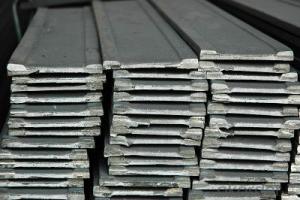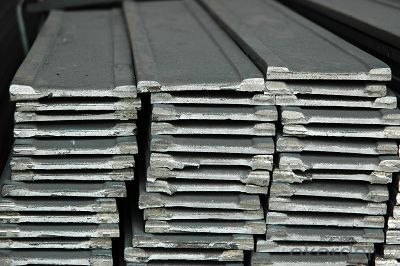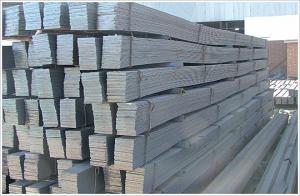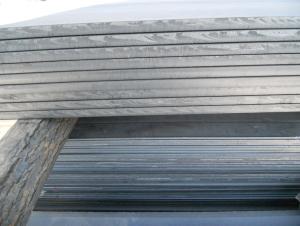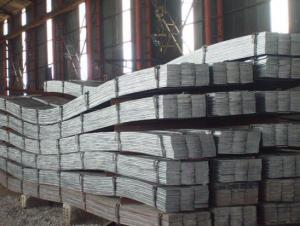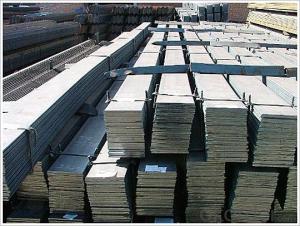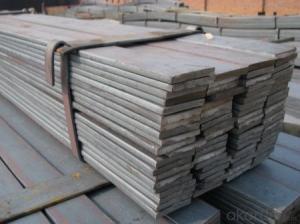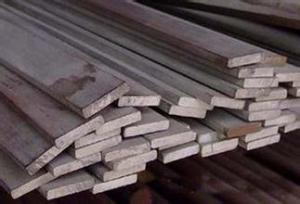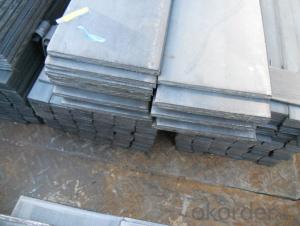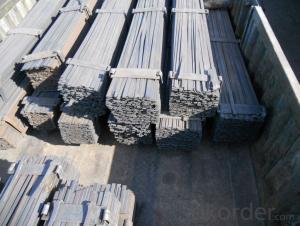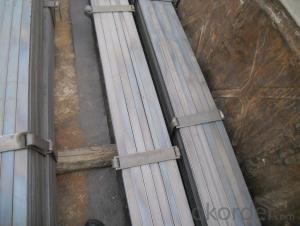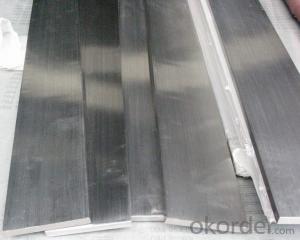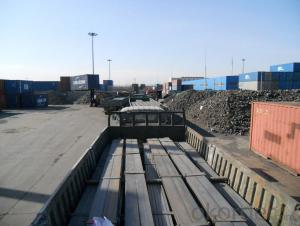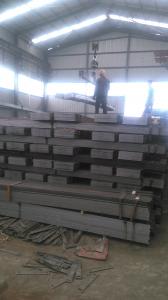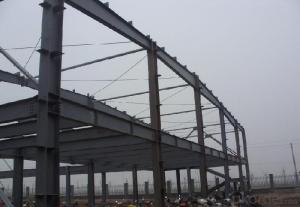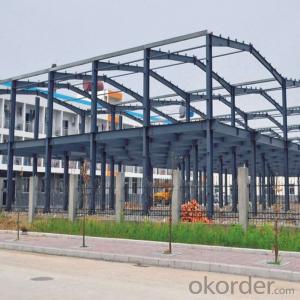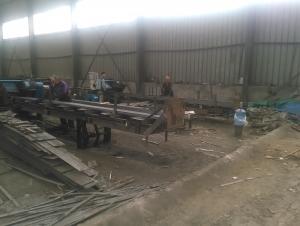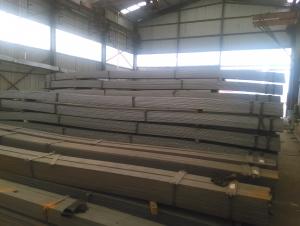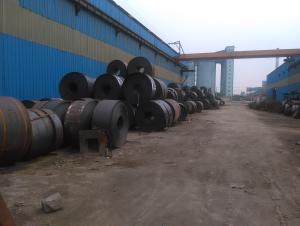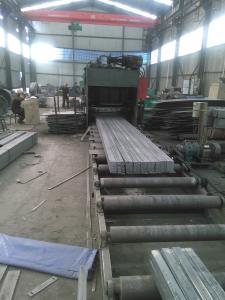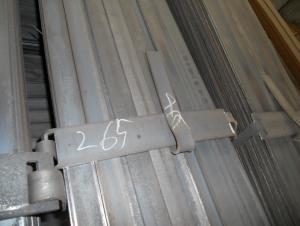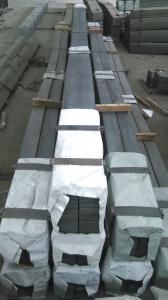JIS standard steel flat bar for construction
- Loading Port:
- Tianjin
- Payment Terms:
- TT OR LC
- Min Order Qty:
- 10000 m.t.
- Supply Capability:
- 100000 m.t./month
OKorder Service Pledge
OKorder Financial Service
You Might Also Like
Specification
Product Description:
OKorder is offering JIS standard steel flat bar for construction at great prices with worldwide shipping. Our supplier is a world-class manufacturer of steel, with our products utilized the world over. OKorder annually supplies products to European, North American and Asian markets. We provide quotations within 24 hours of receiving an inquiry and guarantee competitive prices.
Product Applications:
JIS standard steel flat bar for construction are ideal for structural applications and are widely used in the construction of buildings and bridges, and the manufacturing, petrochemical, and transportation industries.
Product Advantages:
OKorder's Steel flat bar are durable, strong, and resist corrosion.
Main Product Features:
· Premium quality
· Prompt delivery & seaworthy packing (30 days after receiving deposit)
· Corrosion resistance
· Can be recycled and reused
· Mill test certification
· Professional Service
· Competitive pricing
Product Specifications:
Manufacture: slited
Slitting precision (width) : 0.5 mm or less
Raw material: Q235B, Q345B, Q235-1 b
crosscutting precision (length) : 2 mm or less
Processing: the thickness of 2.0-16 mm;
Shear length: 2000 mm above
Wide degree: 15-1250 - mm;
Leveling precision: 1-2 MM square
Packaging: Export packing, nude packing, bundled
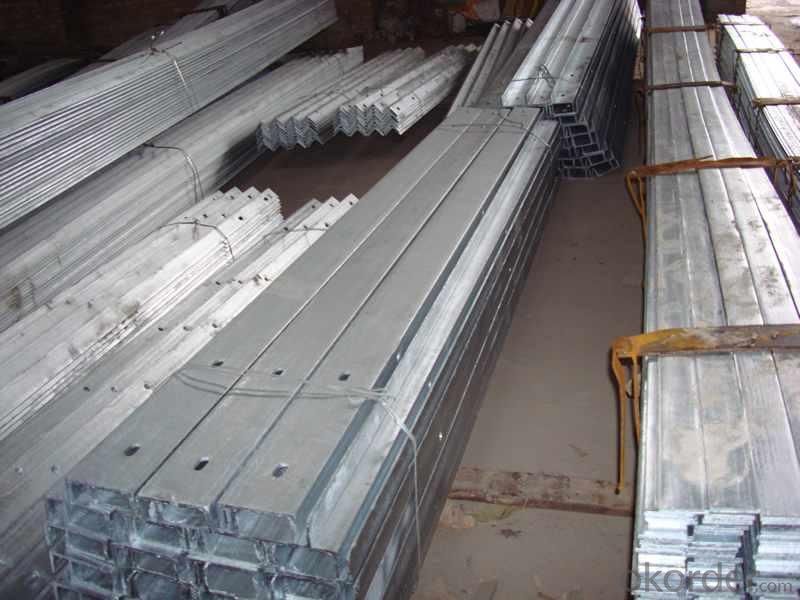
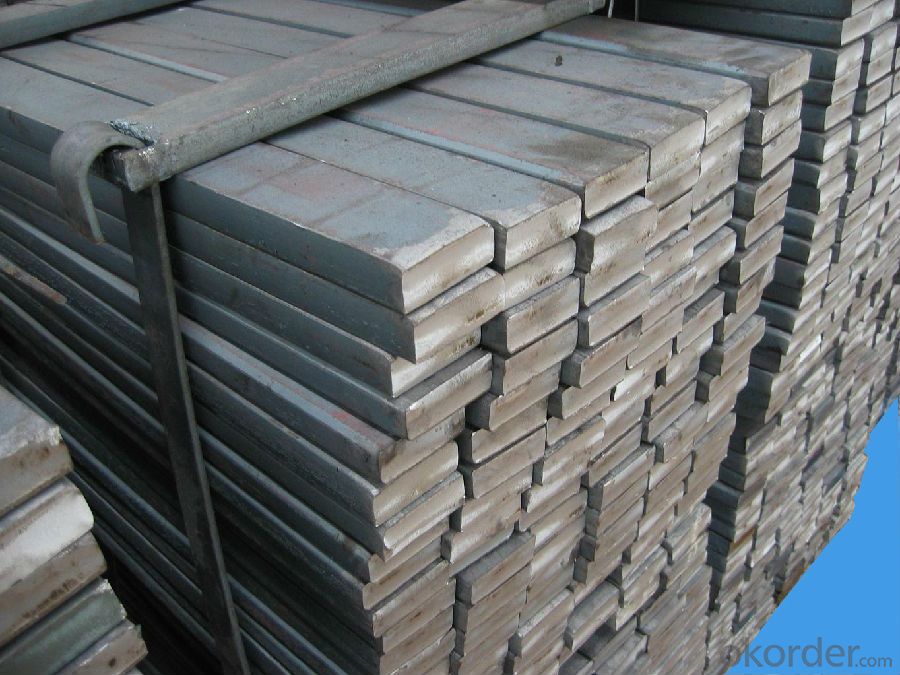
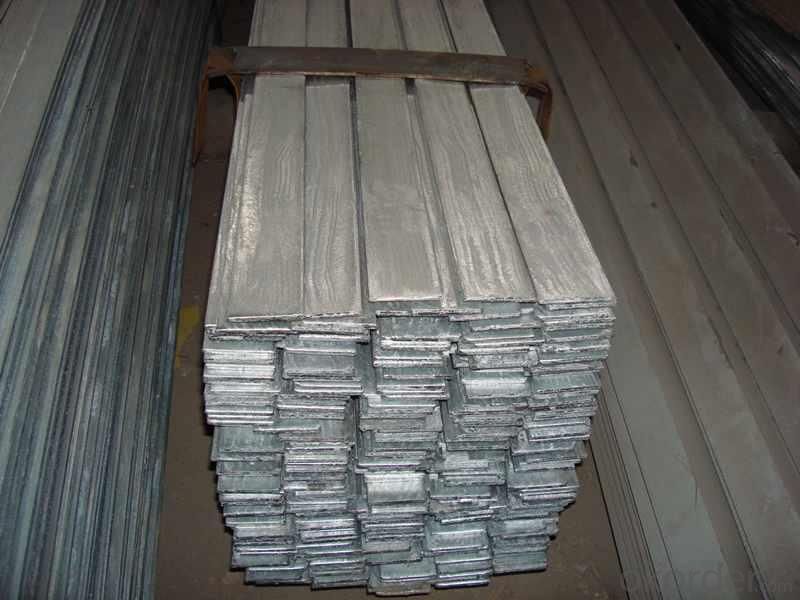
FAQ:
Q1: What makes stainless steel stainless?
A1: Stainless steel must contain at least 10.5 % chromium. It is this element that reacts with the oxygen in the air to form a complex chrome-oxide surface layer that is invisible but strong enough to prevent further oxygen from "staining" (rusting) the surface. Higher levels of chromium and the addition of other alloying elements such as nickel and molybdenum enhance this surface layer and improve the corrosion resistance of the stainless material.
Q2: Can stainless steel rust?
A2: Stainless does not "rust" as you think of regular steel rusting with a red oxide on the surface that flakes off. If you see red rust it is probably due to some iron particles that have contaminated the surface of the stainless steel and it is these iron particles that are rusting. Look at the source of the rusting and see if you can remove it from the surface.
- Q: Can steel flat bars be customized in terms of size and shape?
- Yes, steel flat bars can be customized in terms of size and shape. They can be cut and shaped according to specific dimensions and requirements to meet the desired specifications for various applications.
- Q: Are steel flat bars suitable for high-temperature applications?
- Generally, steel flat bars are not considered suitable for high-temperature applications. This is because steel has a comparatively lower melting point when compared to materials like stainless steel or refractory metals that can withstand high temperatures. When subjected to elevated temperatures, steel flat bars may undergo dimensional alterations, strength loss, and even deformation or failure. To ensure safety and optimum performance, it is advisable to employ materials explicitly designed and engineered to endure elevated temperatures for high-temperature applications.
- Q: How do steel flat bars perform in high-pressure environments?
- Steel flat bars perform well in high-pressure environments due to their high tensile strength and resistance to deformation. They can withstand the pressure and distribute it evenly, making them suitable for applications such as hydraulic systems, pressure vessels, and pipelines.
- Q: Can steel flat bars be used for manufacturing agricultural machinery?
- Yes, steel flat bars can be used for manufacturing agricultural machinery. Steel is a durable and strong material that is commonly used in the construction of heavy-duty equipment, including agricultural machinery. Steel flat bars can be shaped and welded to create various components and structures needed in agricultural machinery such as frames, supports, and brackets. Additionally, steel's resistance to corrosion makes it suitable for withstanding the harsh outdoor conditions often encountered in agricultural environments.
- Q: Are steel flat bars suitable for making HVAC components?
- Yes, steel flat bars are suitable for making HVAC components. Steel is a durable and strong material that can withstand the stresses and demands of HVAC systems. Flat bars provide stability and structural support, making them a suitable choice for various HVAC components such as brackets, supports, frames, and ductwork.
- Q: Are steel flat bars commonly used in the construction of educational institutions?
- Yes, steel flat bars are commonly used in the construction of educational institutions. They are versatile and can be used for various applications such as framing, support structures, and reinforcement. Steel flat bars provide strength and durability, making them suitable for withstanding heavy loads and ensuring the safety and longevity of educational buildings. Additionally, their availability in different sizes and lengths allows for customization and efficient construction.
- Q: What are the different thicknesses available for steel flat bars?
- Steel flat bars are available in a range of thicknesses to suit various applications and requirements. The thickness options for steel flat bars typically vary from 1/8 inch to 1 inch or even more, depending on the specific needs of the project. These different thicknesses allow for flexibility in designing and constructing structures that require strength, durability, and stability. The choice of the appropriate thickness depends on factors such as the intended use, load-bearing capacity, and structural integrity needed for the particular application.
- Q: What are the different certifications and standards for steel flat bars?
- Steel flat bars can be certified and standardized to ensure their quality and suitability for different purposes. Some well-known certifications and standards are: 1. ASTM International (previously the American Society for Testing and Materials): ASTM A108 is a standard specification for cold-finished carbon and alloy steel bars, while ASTM A36 is a standard specification for carbon structural steel, covering shapes, plates, and bars of structural quality. 2. American Iron and Steel Institute (AISI): AISI 1018 is a popular low carbon steel grade commonly used in steel flat bars. It adheres to AISI standards and is renowned for its excellent weldability and machinability. 3. Society of Automotive Engineers (SAE): SAE 4140 is a high-strength steel alloy often employed in steel flat bars. It meets the SAE J404 standard, which sets chemical composition limits for carbon and alloy steel bars. 4. European Norms (EN): EN 10025-2 is a standard specification for hot-rolled structural steel products, including steel flat bars. It outlines technical delivery conditions for non-alloy structural steels. 5. International Organization for Standardization (ISO): ISO 683-3 is a standard that defines technical delivery requirements for hot-rolled or forged steel bars, covering various grades and conditions. 6. British Standards (BS): BS EN 10025-2 is a British standard aligned with European Norms. It specifies technical delivery conditions for non-alloy structural steels, including steel flat bars. It is important to note that specific applications may require additional certifications or standards. For instance, steel flat bars used in construction must meet specific building codes or regulations set by local authorities. Industries like aerospace or automotive may also have unique certifications or standards to ensure the performance and safety of steel flat bars used in their applications.
- Q: Can steel flat bars be used for manufacturing tools?
- Yes, steel flat bars can be used for manufacturing tools. Steel flat bars are commonly used in tool manufacturing due to their high strength, durability, and versatility. These bars can be easily shaped and machined into various tool designs, making them suitable for a wide range of applications. Steel flat bars are also known for their resistance to wear and tear, making them ideal for tools that require frequent use and contact with hard materials. Additionally, steel flat bars can be heat-treated to enhance their mechanical properties, such as hardness and toughness, further improving their suitability for tool manufacturing.
- Q: How do steel flat bars compare to titanium flat bars?
- Steel flat bars are generally stronger and more durable compared to titanium flat bars. Steel has a higher tensile strength, making it suitable for heavy-duty applications and structural support. Titanium, on the other hand, is lighter and more corrosion-resistant, making it ideal for industries like aerospace, where weight reduction and high resistance to corrosion are crucial. Ultimately, the choice between steel and titanium flat bars depends on the specific requirements of the project or application.
Send your message to us
JIS standard steel flat bar for construction
- Loading Port:
- Tianjin
- Payment Terms:
- TT OR LC
- Min Order Qty:
- 10000 m.t.
- Supply Capability:
- 100000 m.t./month
OKorder Service Pledge
OKorder Financial Service
Similar products
Hot products
Hot Searches
Related keywords
